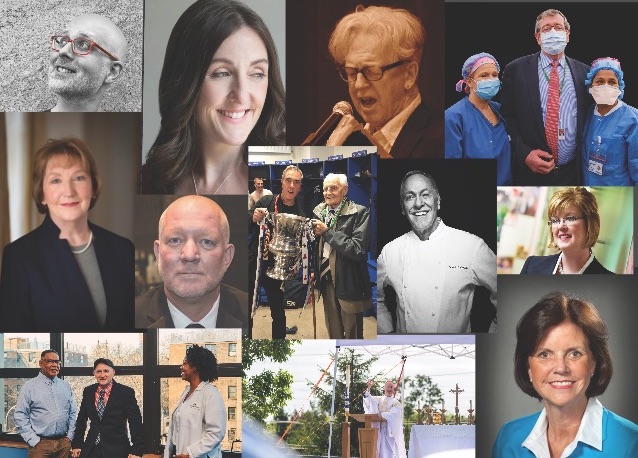How the ongoing pandemic has motivated people to forge ahead by keeping a positive attitude.
Tom Deignan interviews members of the Irish America community on their experience.
Kathleen Donohoe, writer
Quarantine made things feel awfully cramped in the Brooklyn apartment Kathleen Donohoe shares with her husband, Travis, and 10 year-old son, Liam.
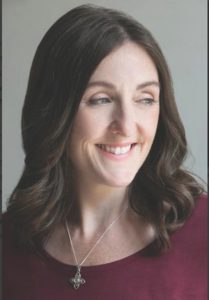
“We dreamed of spare rooms, a backyard, a dog, a window that didn’t offer a view of the B16 stop – and the characters who waited for the bus. Like the clown in full regalia or the guy from the building next door who sat on the bench every afternoon for hours but never got on the bus,” recalled Donohoe, a writer whose novels include 2020’s Ghosts of the Missing.
The sidewalks outside the Donohoes’ apartment were suddenly empty, while the street seemed little more than “a thruway for ambulances, whose constant wails seemed to be a manifestation of the city’s grief and panic.”
Friends with children had left the city for more spacious places.
“We read about New Yorkers with money buying houses in the suburbs, sight unseen, for far above the asking prices,” added Donohoe.
But every night at 7 o’clock, came crucial signs of life.
“Travis and Liam abandoned their laptop and video game respectively. We’d go out onto what we generously call our balcony and we’d join in what was by then full-throated applause. The family up the block banged pots and pans. The people behind us always whooped. We leaned over the railing and clapped and clapped for the health care workers, the essential workers, those who could not stay home.”
The message was clear.
“New York is not dead. We’re still here.”
After what Donohoe recalled as 2020’s “dreary March and rainy April,” she began walking with her son “in nearby Green-Wood Cemetery, choosing it over Prospect Park.”
Donohoe added: “We’d point out when someone died on Christmas Day or their own birthday and considered families like the Cunningtons, who lost Isabella, John and Robert on the same day in 1855. A fire? Measles? Diphtheria?”
These walks, and the cemetery itself, provided solace to Donohoe, she said, because “mourning was general in New York.”
She added: “But it was also about reassurance. The way to prove you are still among the living is to be among the dead.”
Michael Dowling, CEO, Northwell Health
If you happen to run into Northwell Health CEO Michael Dowling, get ready to shake hands.
“Conversations, for me, always go in a better direction after a handshake, than they do after clicking a virtual invite,” the Limerick native said. “I’m looking forward to meeting more people in person again.”
Dowling runs one of the largest health and hospitals systems in the U.S., so the challenges he confronted over the last 18 months were extraordinary.
But he also believes health care professionals more than met the task.
“We have been strategizing responses to catastrophes for many years, and have fine-tuned those responses after major events like 9/11, the Swine Flu pandemic and Superstorm Sandy. The impact COVID-19 had on this world was more evidence that we need to always be thinking ahead – which is what we will continue to do to better care for our communities.”
Dowling never doubted that Northwell’s broad health care community would rise up to meet the many challenges posed by COVID.
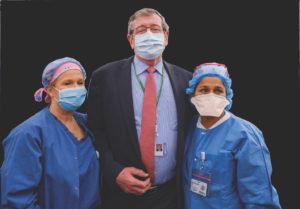
“Knowing our fate was in their hands reassured me that we were going to make it out of this – and come back even stronger.”
He added: “Watching our health care workers – from those on the front lines to those managing our operations throughout the pandemic – was one of the most influential moments of my life. The amount of skill, sacrifice and courage it took to keep New Yorkers safe during such a dark and scary period was no small feat. I never doubted their ability.”
Dowling has also gained a new appreciation for “time with my family because I know how easily that can be disrupted.”
He added: “I think it’s safe to say that we have all grown to better appreciate the importance of family and friends and the role of community. And I am no different. … It’s why I’m so proud of this organization’s preparedness for a disaster. The more people we can save from being impacted by such a catastrophe, the more we are successfully meeting our obligations and responsibilities to the communities we serve.”
Larry Kiran, musician
The pandemic started on (if you will) a bad note for famed musician Larry Kirwan.
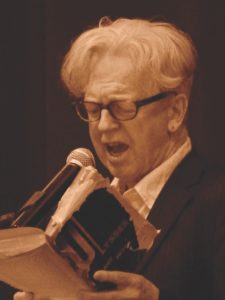
A musical the Black ’47 frontman had been working on for over a decade – entitled Paradise Square, and set during the New York City Draft Riots of 1863 – had finally been scheduled to open on Broadway.
Then Broadway closed down.
Kirwan – like so many of us – had no choice but to look elsewhere for solace and stimulation.
“(The postponement) didn’t seem to trouble me. I guess I realized there were far more important things,” said Kirwan.
While waiting to find out when the Great White Way would finally reopen (March 2022, in the case of Paradise Square), Kirwan exercised his creative muscle by returning to a novel he’d been writing on and off for a number of years, entitled Rockaway Blue, set in post 9/11 New York.
Then there was the world outside Larry Kirwan’s window, which offered its own wonders – and reminders of home.
“I became interested again in nature. From April through October (2020) I observed ospreys and other migratory birds, while in the winter I measured the harsh American landscape against the moist fields of South County Wexford where I grew up.”
Sean T. Granahan, President, The Floating Hospital
As its name suggests, The Floating Hospital was founded at a time when quarantines were common, and the open sea represented one of the few places ailing city children could keep their lungs free from airborne disease – as well as coal soot and manure fumes.
These days, this New York-based health-care provider serves its clients on land – but the Floating Hospital’s historic mission made it uniquely qualified to meet the wide range of needs brought on at the height of the pandemic.
“The camaraderie of the staff got us through the pandemic together, rather than in isolation,” said president Sean T. Granahan.
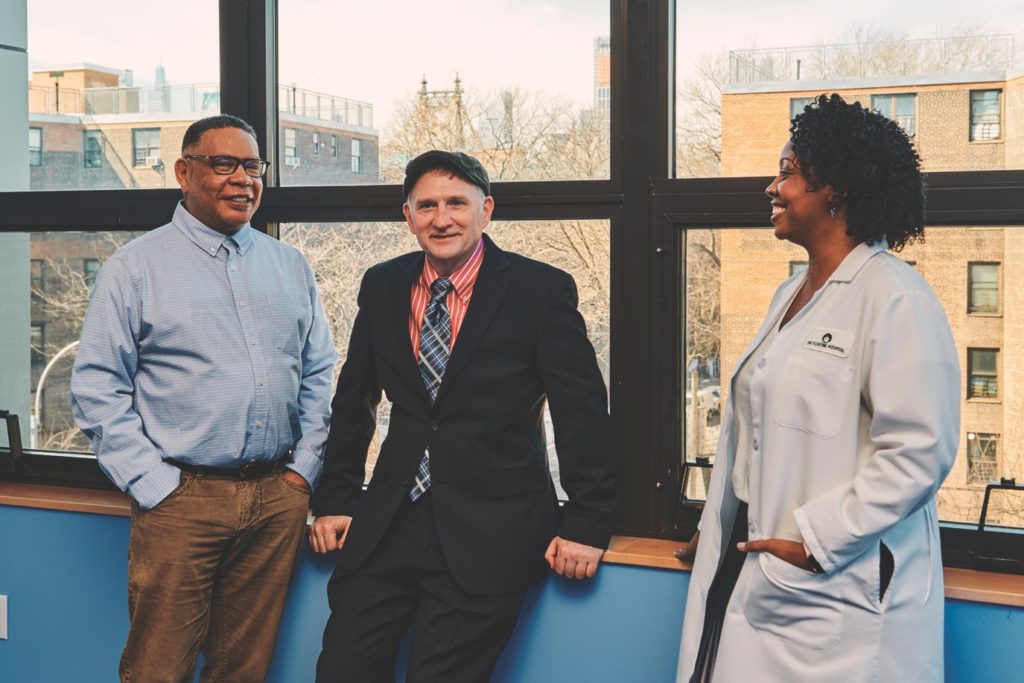
“I kept in constant contact with the hospital staff individually as well as in groups. This helped keep panic to a minimum and let the staff know that we listen and that we care.”
The Floating Hospital provides needy New Yorkers with everything from food and clothing to dental services to – these days – COVID testing and vaccinations.
The pandemic also turned out to be an opportunity for New Yorkers to learn about an institution that has been doing such work for over 150 years.
“As a charity hospital, we rely heavily on the generosity of others to get by when there is no pandemic,” Granahan said.
“I was happily surprised to see our many friends, both in the donor and private foundation world, rise up and lend a helping hand.”
Granahan’s roots are in Crossmolina, Mayo, home to his paternal great-grandfather.
“Dad went back to Ireland every year into his early 80s to visit relatives,” Granahan said, adding: “I hope to get my citizenship after my dad gets his.”
The last 15 months also gave Granahan a chance to start planning for the Floating Hospital’s next 150 years.
“The pandemic forced me to focus more of my time and energy on our fundraising activities and program development. Limited access to the administrative offices created an opportunity to leave the operational end and circulate among program and development staff to get a broader sense of what really moves people to get involved in our work and grow it.”
Tom Liam Lynch, Editor-in-Chief, InsideSchools.org
An opportunity for schools
Tom Liam Lynch has spent a long time looking at America’s largest school system.
And while he very clearly grasps all the pain and suffering the COVID pandemic caused, he also believes leaders in New York City – and across the country – need to see this disruption as a chance to reinvent American education.
“It would be a mistake for districts to just try to go back to what they believed to be the way things were,” said Lynch, whose Kerry-born father came to the U.S. in the 1970s.
“It’s going to be very telling, what happens over the summer, and as we get into the fall,” Lynch added, as proposals for new kinds of learning are floated and debated.
“There’s a lot of potential for creative learning models with these digital technologies.”
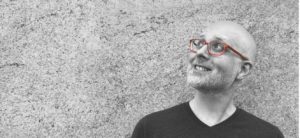
Lynch is one of the nation’s top experts on urban schooling. Aside from his work with InsideSchools – a must-read for big city teachers, administrators and parents – he is also Director of Education Policy at the Center for New York City Affairs, at The New School.
Which means that some of the “new” and “innovative” ideas necessitated by the pandemic are a bit more familiar to him.
A decade ago, he notes, he extensively researched how certain kinds of students might benefit from added opportunities for “remote,” or “distance learning.”
That, of course, is the kind of learning much of the world’s students have done for over a year now.
“For a long time I’ve advocated….that New York City should have a virtual school for
students. Not necessarily for all of their classes. But to have these options,” says Lynch.
“Especially for high school students – and maybe even middle school students. They should not necessarily have to be in a building five days a week. It could be they do two days online, and they are in (the building) two days. And then they have a flexible day.”
In short, Lynch believes now is the time for school districts to think at a more fundamental level about how to improve learning.
“From an education standpoint, the New York City school system is at a crossroads. Schools were really creative during the pandemic and had to rely on different kinds of digital technology for teaching. Those districts have a choice to make right now, about what of all of this (they will) be keeping moving forward.”
To Lynch, it’s a rare opportunity to be bold, rather than timid.
“Are they going to try to return to something they believed was working and maybe wasn’t? Or are they going to take these lessons (learned during the pandemic)…and build on them?”
On a personal level, Lynch says the restrictions of recent months did give him a chance to slow down in positive ways.
“I constantly have a million things going, doing different kinds of projects, and moving 1000 miles an hour. It was helpful to have a chance to slow down, just in terms of being more present at home. To help my (11 year-old) son with school, or cook dinner at night.”
Lynch has already been to Ireland many times, but is looking forward to returning next year, once travel is wide open again.
“We’re definitely interested in travelling again. Last time (in Ireland), we spent time in Kinsale, Cork, and we’d love to get back there.”
But he is also looking forward to showing his son around Dublin.
“Check out Trinity (College) with him.”
As with schooling, Lynch says it would simply be a mistake to go back to living life exactly as we did before COVID.
“The pressure will be there to return to a certain speed of work,” he said. “But I don’t intend to go back to that.”
Eileen McNamara, Pulitzer Prize winning columnist
Former Boston Globe columnist Eileen McNamara forged a new relationship with her surroundings during the pandemic – partly because of a new addition to her home.
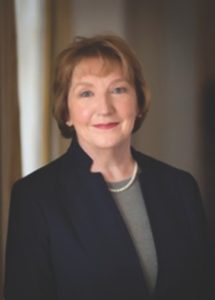
“Like so many others, my husband and I brought home a pandemic puppy,” said McNamara.
Which was cute and all.
But that also meant “predawn pee runs” (McNamara’s words) outside of her New Hampshire home.
In the end, though, the puppy “made us laugh,” even if the new early-morning responsibilities “aged us about 10 years.”
Turns out many creatures, great and small, became McNamara’s pandemic companions.
“We live on six acres in the Lakes Region of New Hampshire and, as attentive as I am to these beautiful surroundings, I met owls, white tail deer, black bears, and wild turkeys who’d been shy about showing themselves before the pandemic. I hope they’ll keep stopping by.”
That said, McNamara – Eunice Kennedy’s biographer, who also teaches journalism and American Studies at Brandeis University – is very much looking forward to campus life.
“When the pandemic hit, our classes went online. … I was so grateful that the technology existed for us to meet virtually but, for me, there is no substitute for being physically together in a classroom. I will be so excited to see my students in person, not on a flat screen!”
In the long run, the pandemic will not be forgotten in the McNamara home. The dog is a daily reminder – in more ways than one.
“We named him Fauci,” McNamara said.
“It seemed only right that he carry the name of the only rational person in the Trump Administration trying to cope with a public health crisis.”
Sean McGarvey, President of North America’s Building Trades Union
Sean McGarvey has watched America’s emergence from COVID restrictions very closely, and believes the future for the unionized construction industry is very bright.
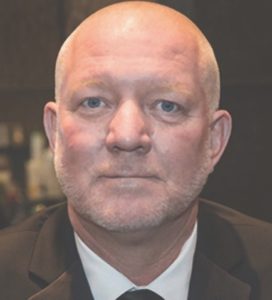
Sean McGarvey has watched America’s emergence from COVID restrictions very closely, and believes the future of the unionized construction industry is very bright.
“The pandemic was devastating in its human toll and economic cost,” he said.
In particular, McGarvey has monitored the debate over a large infrastructure bill in Washington D.C., which supporters say could provide a big boost to the U.S economy.
“Major infrastructure legislation should create work opportunities for our existing and future members,” said McGarvey, “and enable us to amplify our work through apprenticeship readiness for communities of color, at-risk communities, women, veterans, and the formerly incarcerated.”
Back when the extent of the COVID pandemic became clear, McGarvey and NABTU worked with governors across the country to sort out which of its members were essential and could continue working, and which could still complete important tasks in a modified way.
Like many others, NABTU members came to see that important tasks, like certain health and safety training – actually worked just as well from home.
Ultimately, to McGarvey, much of what NABTU members did throughout 2020 was “essential,” and inspiring – even when it was also very painful.
“Our membership did whatever was necessary for the country using their skill sets, whether expediting completion of hospital projects, keeping the power on, building temporary field hospitals, and sometimes morgues,” he noted.
Now, with infection rates decreasing, and many lawmakers hoping to hammer out an infrastructure deal by the fall, McGarvey said: “We believe the future of the unionized construction industry is very bright.”
Eileen McDonnell, CEO Penn Mutual
Her daughter’s postive approach kept things in perspective for Eileen McDonnell
A lot of people are looking forward to being over and done with all the tweaks and changes COVID forced upon us.
But not Penn Mutual CEO Eileen McDonnell.
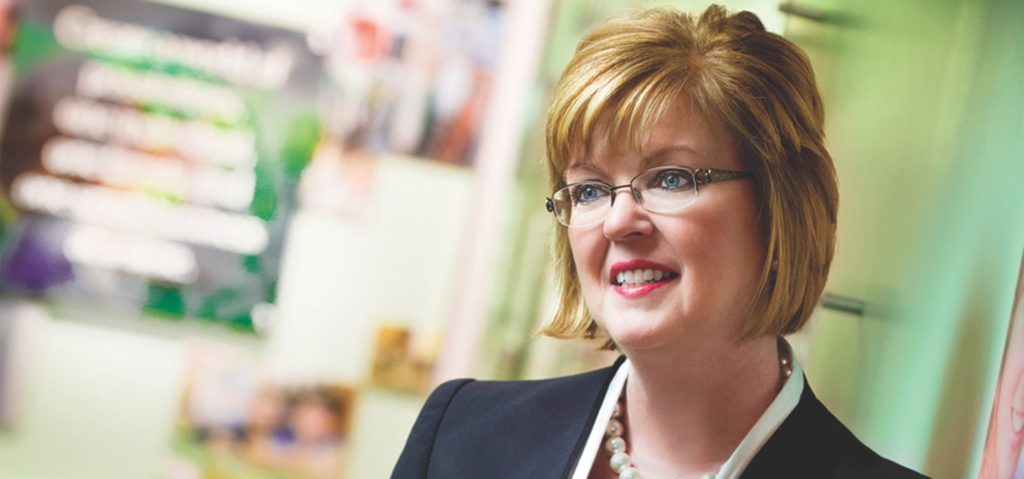
“I’m not sure why my family wasn’t using video conferencing to gather for events sooner?” she says. “Relationships can be formed and strengthened in a virtual world. Geographic boundaries no longer hinder our connections. With family and friends dispersed, we found ways to remain close.”
McDonnell notes that her nephew’s son was recently baptized in Florida.
“The service was live streamed from the church for all to enjoy. Pre-pandemic this wasn’t even an option.”
During the worst months of the pandemic, McDonnell and Penn Mutual worked with customers who had a wide range of insurance-related questions, concerns, and needs.
“Even those who had plans in place prior to the pandemic have done reviews to make sure their plans still meet current and future needs,” she said.
“In addition, we have been able to provide financial stability during a difficult time for loved ones of our customers who sadly passed away from COVID-19.”
When things inevitably got difficult, McDonnell did not have to look far for inspiration.
“Hands down it was my daughter Claire who helped me the most through the pandemic,” she says. “Watching her navigate remote school, isolation from her friends and activities – all while maintaining her incredible sense of humor – kept things in perspective for me.”
Working from home also forced McDonnell to rethink one fundamental life rule.
“I was raised on the belief that the ‘early bird’ catches the worm. Throughout my career I began work before the sun came up. Working from home has opened my eyes to the benefit of some extra shut eye.”
In the end, McDonnell considers herself “fortunate to have endless sources of inspiration” at work and home.
“Each morning I stop to think about what I am most grateful for in my life. Claire always tops my list, along with family and friends. During this time I was reminded that I was surrounded at work by people who deeply care about each other. The expression of gratitude for the care and concern demonstrated to them and their families energized me – and still does.”
Margaret Murphy
Clare native Margaret Murphy has a passion for nursing that comes through in her words, in her life, and even in the lives of her children.
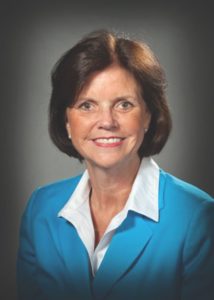
“COVID really highlighted the value of nurses,” said Murphy, herself a longtime nurse, before taking on her current administrative positions – Chief Nursing Officer and Associate Executive Director for patient care at Long Island Jewish Medical Center in Queens.
Looking back on the immense challenges of the last year-and-a-half, Murphy hopes our new appreciation for all health-care workers translates into new practices.
“Staff need time for self care, and they need those resources that help to build up their resilience,” she says. “I don’t know if we thought about that enough prior to COVID.”
This hits home in a particular way for Murphy. Two of her daughters (she also has a son) work in the healthcare field.
And her third grandchild was born in late June, just as the whole country was tentatively emerging from COVID’s long, dark shadow.
“It changed all of us fundamentally,” said Murphy.
“On our average day – which we never think is average because [LIJ] is such a busy place – we have two things to focus on. One is staff safety. Staff is your greatest asset, because you can’t take care of the patient unless the staff is safe,” said Murphy. “Next, is making sure patients receive excellent care and have timely transitions, starting from the emergency room to an inpatient bed, receiving proper treatment and diagnosis all along the way.
“Then COVID comes along,” Murphy says. “That really changed how we all thought, and what we needed to do.”
At every level of the intake process, staff had to wonder if the patients were infected with COVID. Early on, test results were time-consuming, and not always timely due to the initial limited capacity for testing.
“There was all this unknown.”
Then there was the sheer volume, with a “peak census” of 900 patients at LIJ – a 583-bed facility.
And yet, Murphy was astonished by what she ended up seeing.
“When the chips are down you know where you stand. Well, we stood tall. (Our staff) were resilient. They were compassionate, they were creative, and they were extraordinary.”
She adds: “I have a new awareness of what we have the ability to accomplish. Nothing is impossible.”
Murphy’s own nursing career began at St. Francis Hospital, in Roslyn, Long Island. She came to the U.S. with her parents and siblings when she was 5, and returned to Clare for high school, before heading back to New York.
She began her nursing education only after she had her three children.
Murphy’s experiences with COVID compelled her to think about better and more efficient ways to deliver care to patients – but also about other things.
“I don’t think we listen well enough to each other,” she observed.
“We’re always in a hurry. We have to slow that down a bit. If we see a stranger in need on the streets, we have to think – ‘That’s somebody’s loved one’.”
She added that she now “looks at life differently… You have to look at your loved ones every day and you have to be a little bit more grateful. You really have to cherish the moments you spend at home or with your work family – those people that you’ve come to care about a great deal.”
Patrick O’Connell, Chef, Restaurateur
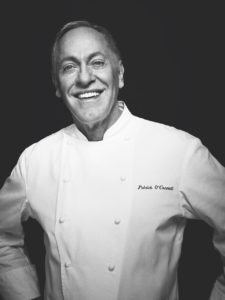
“This part of Virginia reminds me of Ireland,” celebrated chef and restaurateur Patrick O’Connell told Irish America recently, referring to the town of Washington, about a 90-minute drive from the nation’s capital.
“That may be why I was drawn here in the first place… . The rolling hills, gorgeous vistas, ever-changing light…the occasional rainbows.”
O’Connell’s Inn at Little Washington has been wowing the food world since 1978. And the spacious foothills of Appalachia also turned out to be a relatively safe place to ride out a global pandemic.
“More than ever we’re recognizing and appreciating how fortunate we are to be living in the country, and how lucky we are to have such a supportive clientele,” said O’Connell, a Washington, D.C. native, who graduated from Catholic University.
About a year before COVID changed everything, the food gods – that is, the folks who run the Michelin restaurant-rating guide – smiled down upon O’Connell once again.
“The Michelin Guide…added a coveted third star to the Inn’s previous designation, making it the first restaurant in the Washington area to earn three stars,” The Washington Post reported in late 2018.
Not long after, though, the entire country’s food and hospitality scene was shut down.
All O’Connell could do was reacquaint himself with the picturesque region he’s called home since the early 1970s.
“Every afternoon I loaded my dog Luray into the back of the car and we took a long rambling ride through the countryside…. as if I were a visitor for the first time,” he said.
Since reopening, the Inn’s guests and patrons have been “celebrating all the special occasions they missed while being quarantined,” O’Connell said, while he’s “tried to continue our ritual of an afternoon drive in the country.”
The pandemic, O’Connell added, “provided a much needed pause to reflect, reconsider and re-invent our work.”
O’Connell’s most-anticipated new undertaking is about to be unveiled.
“This summer,” a recent Wall Street Journal Magazine feature noted, “work will be completed on…Patty O’s Cafe & Bakery, O’Connell’s first new restaurant since 1978.”
Now that travel is also resuming, O’Connell
also plans to head back to Ireland “in the near
future.”
He reeled off a list of sites he hoped to visit in Dublin and Laois, before adding that he believes the Irish themselves to be the country’s best attraction.
“The first time I visited Ireland I had the feeling that I was related to everybody I met.”
James Nesbitt, actor
For the acclaimed TV and move actor, the pandemic was a chance to spend time with his father.
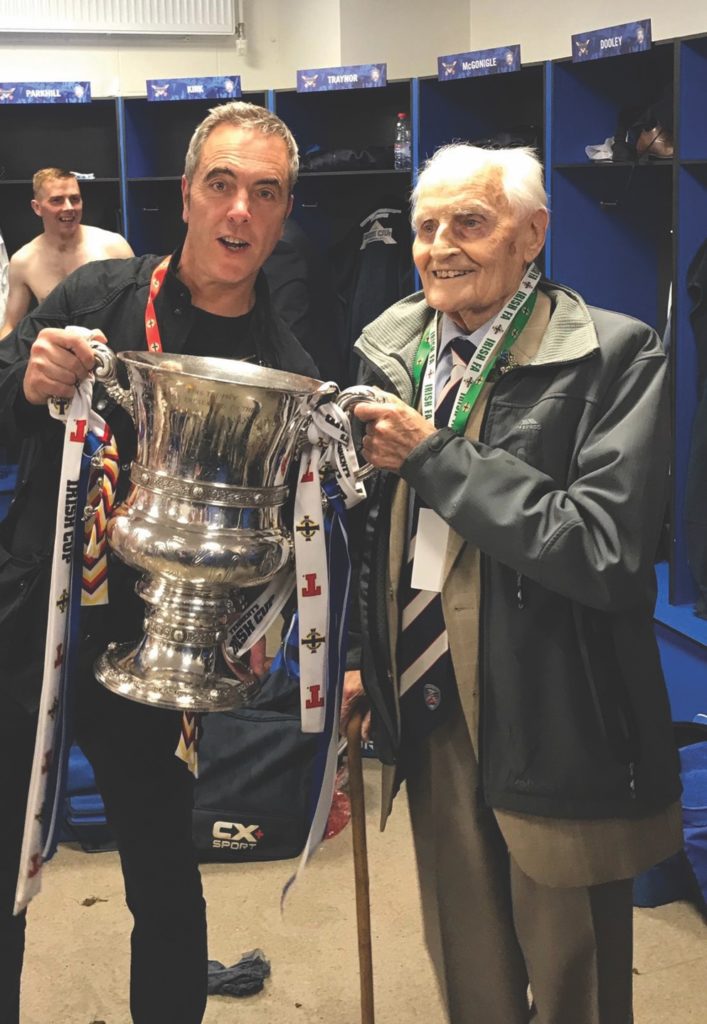
Filming on Bloodlands (now showing on Acorn TV) wrapped on March 13, 2020 in Belfast, and James Nesbitt was ready to go back to London when lockdown happened.
“It turned out to be a real blessing for me because I was able to spend time with my father, who then passed away in August. He was 91.
“I look back on [lockdown] now with gratitude. I got to become best pals with my dad again, and to rekindle a friendship that had started when he was my primary school headmaster for four years in a very small school [in Brughshane, Co. Antrim] when I was growing up.
“So, I was one of the lucky ones. I was by the sea up north of Portrush and it is very beautiful there.”
Father Daniel O’Mullane
During the pandemic, Father Daniel O’Mullane had to confront this unfortunate reality: At a time when spiritual needs seemed to be greatest, it was most challenging to deliver.
It was Spring 2020 at Our Lady of Mount Carmel parish in the north Jersey town of Boonton, and reports of Coronavirus cases seemed to be getting worse everyday.
That was when an internet ad from Home Depot featuring (of all things) a shed popped up on Father O’Mullane’s computer screen.
“You know what?” he recalled saying to himself. “That just might work.”
That’s how the sacrament of confession came to be administered in a shed, in northern New Jersey.
“It had windows, and you could hang up a cloth,” noted O’Mullane. “People could drive up and get out of the car when it was (their turn).”
O’Mullane – born into an Irish family in England, before coming to the U.S. – was inside the shed, while confessors stayed outside.
Signs pointed visitors to the window, and also warned them: “Please, Do Not Touch Anything.”
It soon became clear that O’Mullane had actually touched parishioners in an important way.
“We suffered our losses, for sure – death, illness, sickness. It’s been a traumatic experience for us, really challenging.”
O’Mullane noted that a local Catholic Charities group went from serving 10,000 to 30,000 free weekly meals.
Which might explain why so many people flocked to O’Mullane’s shed.
“Tons of people showed up. … I had originally planned to (hear confessions) for three hours a day, for three days.”
O’Mullane ended up hearing 15 hours of confession some weeks.
It was one of many improvisations the parish performed during the pandemic.
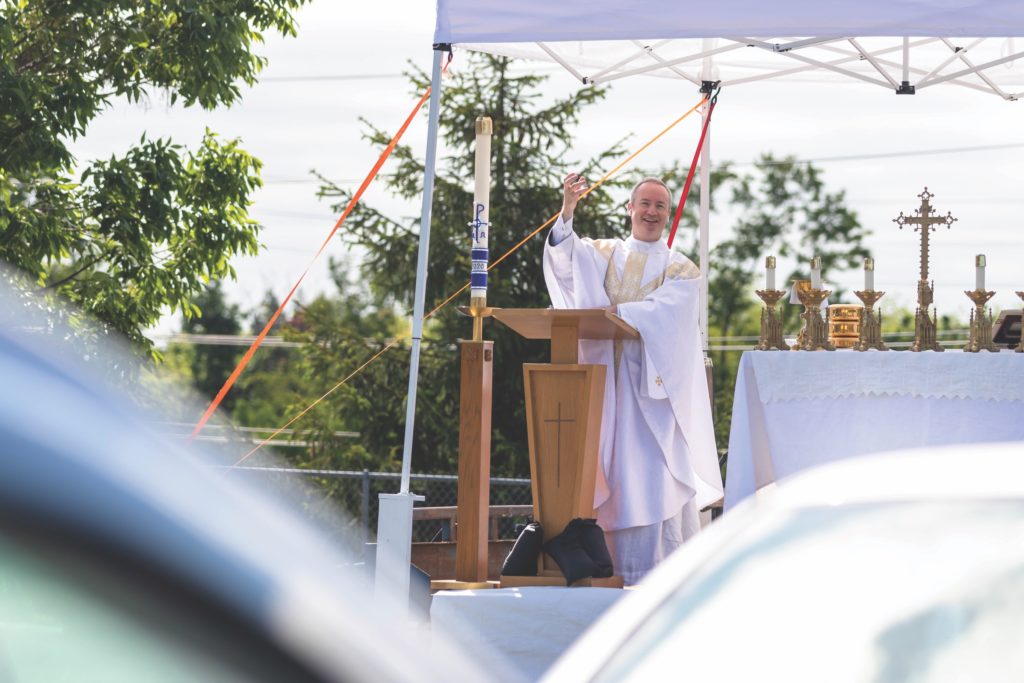
O’Mullane and others also celebrated mass in a Walmart parking lot – which, when we spoke, were about to end “after 60 weeks.”
So, what is Father O’Mullane now looking forward to?
“Parties!” he says with a laugh – though he is only half-joking.
“Church should be a sociable place,” he added.
Towards that end, the parish was planning its first major public function in 15 months – a mid-July feast in celebration of the saint after whom the parish is named.
“I think we’re stronger because we were able to come together,” said O’Mullane. “That closeness really matters. We have it as a result of what we’ve been through together.” ♦

